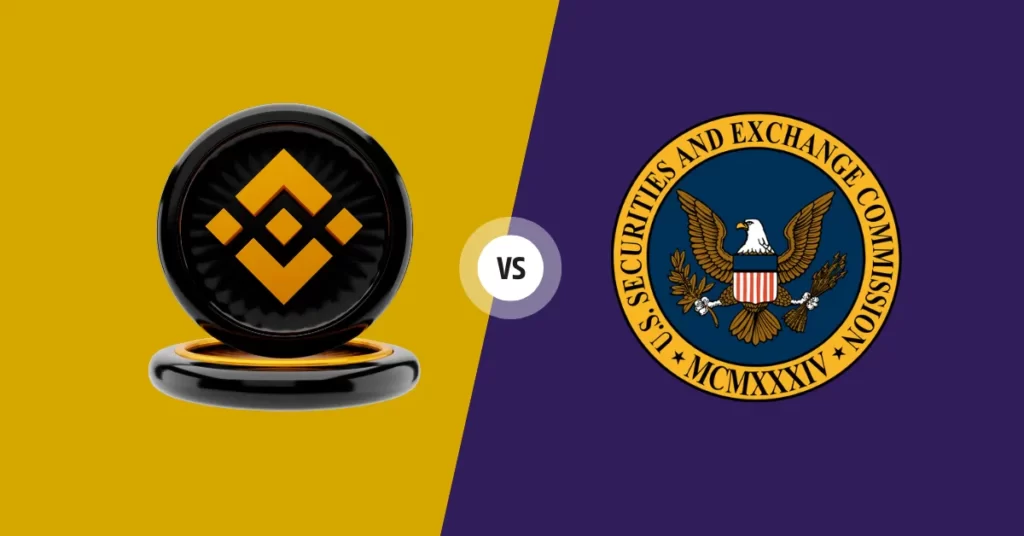Circle, the issuer of the USDC stablecoin, has filed an amicus curiae brief in support of Binance, the world’s largest crypto exchange, in its ongoing lawsuit with the SEC. Circle argues that stablecoins are not securities and should not be regulated as such by the SEC.

An amicus curiae brief can provide additional information, arguments, or insights that may help the court reach a decision.
The SEC-Binance lawsuit started in June 2021, when the SEC filed a complaint against Binance, its U.S. affiliate BAM Trading, and its founder Changpeng Zhao, also known as CZ.
The SEC accuses Binance of violating various securities laws, such as:
- Operating unregistered exchanges, broker-dealers, and clearing agencies;
- Misrepresenting trading controls and oversight on the Binance.US platform;
- And offering and selling unregistered securities, including Binance’s own tokens, BNB and BUSD, as well as other cryptocurrencies like SOL and ADA.
The SEC claims that Binance has been allowing U.S. customers to access its global platform, Binance.com, which offers more crypto assets and services than its U.S. platform, Binance.US, despite claiming otherwise.
U.S. SEC also alleges that Binance has been secretly controlling Binance.US behind the scenes while misleading investors about its independence and compliance.
Moreover, the SEC alleges that Binance has been mishandling customer funds and engaging in manipulative trading practices.
Binance denies the SEC’s allegations and argues that the SEC is overstepping its authority and trying to regulate digital assets without proper guidance or legislation.
Binance recently filed a motion to dismiss the SEC’s complaint, claiming that it has no merit and violates Binance’s constitutional rights.
Circle’s case for stablecoins as a form of digital money
In its amicus curiae brief, Circle argues that stablecoins are not securities and should not be subject to the same regulatory scrutiny as traditional securities. Circle bases its argument on two main points:
First, Circle claims that users of stablecoins do not expect to make a profit from their standalone purchases. Instead, they use stablecoins as a medium of exchange or a store of value.
Therefore, stablecoins do not meet the criteria of an investment contract, one of the securities categories under U.S. law.
Second, Circle claims that the sale of an asset does not create an investment contract if the seller has no post-sale commitments or obligations.
Circle cites decades of legal precedents that support this notion. Circle also asserts that it does not have any ongoing relationship or obligation with its USDC or
BUSD holders after they purchase the stablecoins.
Circle concludes its brief by stating that stablecoins are an innovative and beneficial form of digital money that should not be stifled by excessive regulation.
Circle urges the court to reject the SEC’s attempt to classify stablecoins as securities and to uphold the principle of innovation and competition in the crypto industry.
The USDC issuer is one of the leading issuers of stablecoins, and its USDC is one of the most widely used stablecoins in the crypto market, with a market capitalization of over $30 billion.
Circle also partners with Binance to issue BUSD, another popular stablecoin that is backed by the U.S. dollar.

